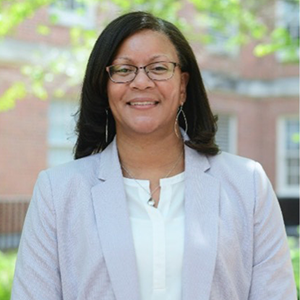Youth Mental Health First Aid Training of Rural Black Church Leaders as a Tool to Improve Mental Health Literacy and Access
2023 Award: $47,275
Adolescent depression, anxiety, and suicide are increasingly evident within rural and Black communities, with suicide as one of the leading causes of death among Black youth. Because the Black Church is seen as a safe space for many rural Black communities, congregational church leaders may serve as trusted adults for youth congregants to receive mental health support. This project will adapt the Youth Mental Health First Aid (Y-MHFA) training for African Methodist Episcopal (AME) church leaders in Johnston County, NC and assess whether the adapted training is acceptable, feasible, and effective in increasing the capacity of church leaders to identify, support, and refer youth with mental health challenges.
Need/Problem: North Carolina is experiencing a youth mental health crisis as adolescent depression, anxiety, and suicidal behaviors are becoming increasingly evident within rural and Black communities. Due to the stark deficit and low proximity to available mental health resources for youth in North Carolina, as well as an increased likelihood of being affected by stigma and lower mental health literacy, there is a high need for professional mental health intervention, a reduction in stigma and mistrust in the medical system, and increased capacity for community members to identify and help youth with mental health challenges.
Grant Summary: Our primary objective is to understand whether providing culturally adapted Youth Mental Health First Aid training to Black church leaders from the African Methodist Episcopal (AME) church in rural Johnston County, NC can help support Black youth congregants in crisis and non-crisis situations. We will modify the training for rural, Black, faith-based communities in North Carolina, provide the adapted training to church leaders, and assess outcomes through surveys and focus groups.
Goals and Projected Outcomes: Results of this study will inform whether this culturally adapted intervention can feasibly be delivered in this setting and how learning from a trainer with a similar cultural background and inclusion of faith-based adaptations affect comfort, satisfaction, and application of skills. We will also assess whether participants demonstrate improvement in identifying mental illness, increased confidence in assisting someone who needs help, and increased referrals to mental health resources.

Tyehimba Hunt-Harrison, MD, MPH
Grant Details: With suicide as one of the leading causes of death among Black youth, adolescent depression, anxiety, and suicidal behaviors is becoming increasingly evident within rural and Black communities. To address the barriers to accessing professional mental health resources in North Carolina such as low proximity to services, stigma, and low mental health literacy, this project is adapting the Youth Mental Health First Aid training for Black church leaders from the African Methodist Episcopal (AME) church in rural Johnston County so that church leaders are equipped to identify, support, and refer youth congregants with mental health challenges. Through surveys and focus groups, we will assess whether this culturally adapted training is acceptable to Black faith leaders, feasible to implement in church congregations, delivered with fidelity, and whether this will increase mental health literacy and helping and seeking behaviors among participants. The findings of this study will provide critical evidence to design and support a larger clinical trial to assess the effectiveness of a culturally adapted Y-MHFA intervention to provide mental health support for rural Black youth in need.

